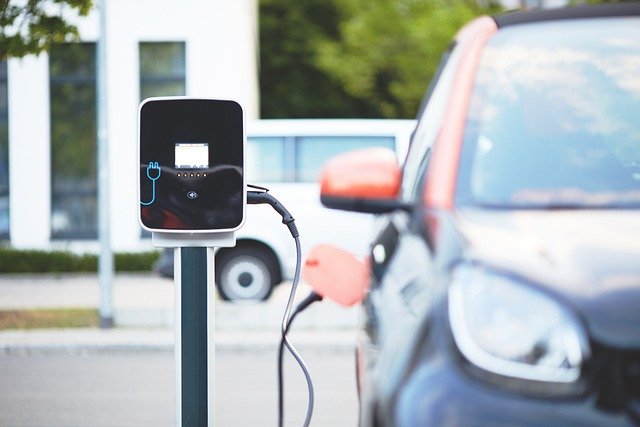Electric Car Home Charger Costs and Installation Guide
Installing an electric car charger at home represents a significant step towards convenient, cost-effective vehicle charging. With electric vehicle adoption growing rapidly across the UK, understanding the financial investment required for home charging infrastructure has become essential for current and prospective EV owners. Home charging offers numerous advantages over public charging stations, including lower electricity rates, overnight convenience, and long-term cost savings that can substantially reduce your overall vehicle operating expenses.

Understanding the Cost of Home Charger for Electric Car
The cost of home charger for electric car varies significantly depending on several factors including charger type, power output, and additional features. Basic Level 2 chargers typically range from £300 to £800 for the unit itself, while more advanced smart chargers with WiFi connectivity and scheduling features can cost between £500 and £1,200. Premium models offering faster charging speeds and advanced monitoring capabilities may reach £1,500 or more.
Charging speed represents a crucial consideration when selecting a home charger. Standard 7kW chargers suit most residential applications and can fully charge typical electric vehicles overnight. However, homes with three-phase electrical supplies can accommodate 22kW chargers, significantly reducing charging times. The power output directly influences both equipment costs and installation requirements, with higher-powered units necessitating more substantial electrical upgrades.
Electric Car Charger Home Installation Requirements
Electric car charger home installation involves several technical considerations that affect both feasibility and cost. Professional electricians must assess your home’s electrical capacity, ensuring the main consumer unit can handle additional load without compromising safety or reliability. Most installations require dedicated circuits with appropriate circuit breakers and earthing arrangements compliant with current electrical regulations.
Location selection plays a vital role in installation planning. Ideally, chargers should be positioned within easy reach of your vehicle’s charging port while maintaining safe distances from water sources and ensuring adequate ventilation for the equipment. Wall-mounted units are most common, though freestanding posts offer flexibility for homes where wall mounting proves impractical.
The installation process typically requires half-day to full-day completion, depending on complexity. Electricians will install the charging unit, run appropriate cabling, upgrade consumer units if necessary, and conduct comprehensive safety testing. All installations must comply with BS 7671 electrical standards and include proper certification.
EV Charger Installation Cost Breakdown
EV charger installation cost encompasses both equipment and labour charges, with total expenses typically ranging from £500 to £2,000 for complete installations. Labour costs generally account for £200 to £600 of the total expense, varying based on installation complexity and regional pricing differences. Simple installations where electrical infrastructure already meets requirements cost considerably less than complex projects requiring significant electrical upgrades.
Additional costs may include consumer unit upgrades (£150-£400), electrical meter relocations (£100-£300), and extensive cable runs for distant mounting locations. Some properties require earth rod installations or supply upgrades, potentially adding £200-£800 to overall costs. Planning permissions are rarely required for domestic installations, though listed buildings or conservation areas may have specific restrictions.
Government grants can significantly reduce installation costs. The EV chargepoint grant provides up to £350 towards installation costs for eligible applicants, while some local authorities offer additional incentives. These financial incentives make home charging more accessible and improve the overall investment proposition.
| Charger Type | Power Output | Equipment Cost | Installation Cost | Total Investment |
|---|---|---|---|---|
| Basic 7kW Unit | 7kW | £300-£500 | £200-£400 | £500-£900 |
| Smart 7kW Charger | 7kW | £500-£800 | £300-£500 | £800-£1,300 |
| Fast 22kW Unit | 22kW | £800-£1,200 | £400-£700 | £1,200-£1,900 |
| Premium Smart Charger | 7-22kW | £1,000-£1,500 | £300-£600 | £1,300-£2,100 |
Prices, rates, or cost estimates mentioned in this article are based on the latest available information but may change over time. Independent research is advised before making financial decisions.
Choosing Professional Installation Services
Professional installation ensures safety, compliance, and optimal performance of your electric vehicle charging equipment. Qualified electricians specialising in EV installations possess necessary certifications and experience handling complex electrical requirements. They provide comprehensive assessments, recommend appropriate equipment based on your specific needs, and ensure installations meet all relevant safety standards.
When selecting installation services, verify electricians hold appropriate qualifications including 18th Edition wiring regulations certification and specific EV charging training. Many manufacturers offer approved installer networks, providing additional quality assurance and warranty protection. Obtaining multiple quotes helps ensure competitive pricing while allowing comparison of different approaches and equipment recommendations.
Post-installation support represents another crucial consideration. Professional installers typically provide warranties covering both equipment and workmanship, offering peace of mind and protection against potential issues. They can also advise on optimal charging schedules, electricity tariffs, and maintenance requirements to maximise your investment’s value.
Long-term Benefits and Considerations
Home electric car charging offers substantial long-term financial benefits despite initial installation costs. Domestic electricity rates are typically 30-50% lower than public charging alternatives, generating significant savings over vehicle ownership periods. Off-peak tariffs can reduce charging costs further, with some electricity suppliers offering special EV rates as low as 7-10p per kWh during overnight periods.
The convenience factor proves equally valuable, eliminating regular visits to public charging stations and ensuring your vehicle starts each day fully charged. This reliability becomes particularly important during busy periods or adverse weather conditions when public charging availability may be limited.
Property value enhancement represents an additional benefit, with home charging infrastructure increasingly viewed as desirable features by potential buyers. As electric vehicle adoption continues growing, homes with existing charging facilities may command premium prices and appeal to broader buyer demographics.
Installing an electric car charger at home requires careful consideration of costs, technical requirements, and long-term benefits. While initial investment may seem substantial, the combination of convenience, cost savings, and property value enhancement makes home charging an increasingly attractive proposition for electric vehicle owners seeking optimal charging solutions.




